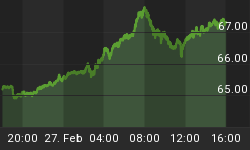What must be done to recover from this financial crisis? Barack Obama rightly stresses that we first must understand how today's problems emerged. It is "only by understanding how we arrived at this moment that we'll be able to lift ourselves out of this predicament."
Unfortunately, Obama (along with most of the Washington establishment) has created only misunderstanding. In calling for a massive increase in government control over the economy, he has evaded the mountain of evidence implicating the government.
For example, Obama's core explanation of all the destructive behavior leading up to today's crisis is that the market was too free. But the market that led to today's crisis was systematically manipulated by government. Fact: this decade saw drastic attempts by the government to control the housing and financial markets--via a Federal Reserve that cut interest rates to all-time lows, and via a gigantic increase in Fannie Mae and Freddie Mac's size and influence. Fact: through these entities, the government sought to "stimulate the economy" and promote homeownership (sound familiar?) by artificially extending cheap credit to home-buyers. Fact: most of the (very few) economists who actually predicted the financial crisis blame Fed policy or housing policy for inflating a bubble that was bound to collapse.
How does all this evidence factor into Obama's understanding of "how we arrived at this moment"? It doesn't. Not once, during the solemn 52 minutes and 5,902 words of his speech to Congress did he mention the Fed, Fannie, or Freddie. Not once did he suggest that government manipulation of markets could have any possible role in the present crisis. He just went full steam ahead and called for more spending, more intervention, and more government housing programs as the solution.
But a genuine explanation of the financial crisis must take into account all the facts. What role did the Fed play? What about Fannie and Freddie? To be sure, some companies and CEOs seem to have made irrational business decisions. Was the primary cause "greed," as so many claim--and what does this even mean? Or was the primary cause government intervention like artificially low interest rates, which distorted economic decision-making and encouraged less competent and more reckless companies and CEOs while marginalizing and paralyzing the more competent ones?
Entertaining such questions would also mean considering the idea that the fundamental solution to our problems is to disentangle the government from the markets to prevent future manipulation. It would mean considering pro-free-market remedies such as letting banks foreclose, letting prices reach market levels, letting bad banks fail, dismantling Fannie and Freddie, ending bailout promises, and getting rid of the Fed's power to manipulate interest rates.
But it is not genuine understanding the administration seeks. For them, the wisdom and necessity of previous government intervention is self-evident; no matter the contrary evidence, the crisis can only have been caused by insufficient government intervention. Besides, they are too busy following Obama's chief of staff's dictum, "Never let a serious crisis go to waste," by proposing a virtual takeover of not only financial markets, but also the problem-riddled energy and health-care markets--which, they conveniently ignore, are also already among the most government-controlled in the economy.
While Obama has not sought a real explanation of today's economic problems, Americans should. Otherwise, we will simply swallow "solutions" that dogmatically assume the free market got us here--namely, Obama's plans to swamp this country in an ocean of government debt, government controls, and government make-work projects. But alternative, free-market explanations for the crisis do exist--ones that consider the inconvenient facts Washington ignores--and every American should seek to understand them.
Those who do will likely end up telling our leaders to stop saying "Yes, we can" to each new proposal for expanding government power, and start saying "Yes, you can" to Americans who seek to exercise their right to produce and trade on a free market.















